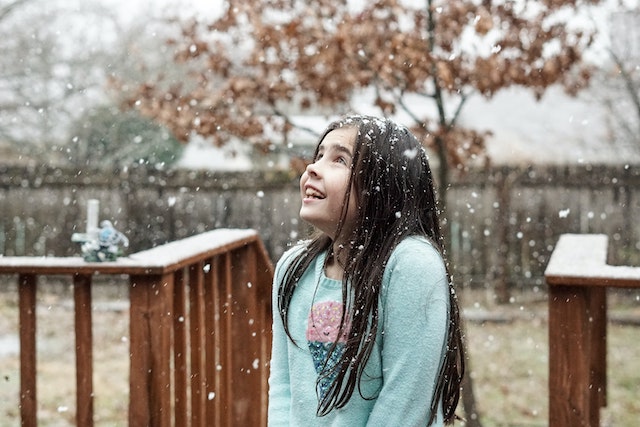When dealing with children there can be many unexpected curve balls. Infanthood can bring acid reflux, teething, sleep regressions, and growth spurts. While toddler years are often accompanied by potty training accidents and the evolution of picky eaters; the years to come as our children age, only continue to bring unexpected developments. Some of these events can be exciting ( first steps, graduating pre-k, etc.), but there is always the potential for disappointment as well, such as inclement weather or that nasty flu/stomach bug that just happens to be making its rounds in your community.
The truth of the matter is that most people don’t like unforeseen change and having to deal with unexpected events like sick days or snow days can be a real challenge. Adults often have to figure out how to balance different schedules, while for some kids changes in routine can be devastating resulting in tantrums and other negative reactions. Here are some tips for making the best out of the unexpected, to make these days easier for both you and your kids.
Take Everything in Stride
Unexpected events can be very jarring, but they have the potential to evolve into memorable moments that we cherish. The key thing, no matter the circumstances, is to look at the bright side of things and do whatever possible to have a great day. For instance, inclement weather may mean that you have to stay indoors, but it could also be the start of a day full of building forts and indoor camping time.
Set Reasonable Expectations
Planning for the worst and hoping for the best is a good way to prepare for days that don’t quite start as planned. When plans change, it can be easy to catastrophize but taking the moment in stride can help make things more positive. However, that said it is important to set realistic expectations. Keep in mind that things will have to change and compromises may have to be made for you and your child to get through unscheduled events. One tactic to help your child adjust is to provide rewards for flexibility and thank your children for trying their best to adapt to the circumstances.
Make a Schedule
Part of getting through the unanticipated is to have a plan. Decide on childcare options for the day, whether you work from home or have to arrange for a caregiver, do some basic meal prepping for snacks and lunch, and plan a few activities for your kids to enjoy that can be done both with and without an adult overseeing them. Setting up little activities and drafting a schedule with timers and choices for your kids can help them feel secure in their plans for the day. Talk with your kids, share the schedule and stick to it as much as possible to create some normalcy in what may otherwise feel like an abnormal day.
Keep Open Lines of Communication
Once you have a plan or realize that plans will have to change, it’s important to communicate. Let your child know the schedule for the day and allow them to communicate their feelings about it. As a caregiver and/or parent, reach out to one another to keep each other in the loop about what’s going on. Apps like Childwatch can make this step much easier with real-time messaging. Additionally, don’t be afraid to reach out to other friends/family members/co-workers if you need a little backup throughout the day.
Set the Tone
Having a cool, calm, and collected attitude when dealing with children will make a world of difference in deciding how the day will go. Children feed off of the energy of the adults in their lives. Be real about your emotions and encourage positivity so that your children can have a positive response as well.
No matter the challenges that you face throughout the day, make the most of every moment.

